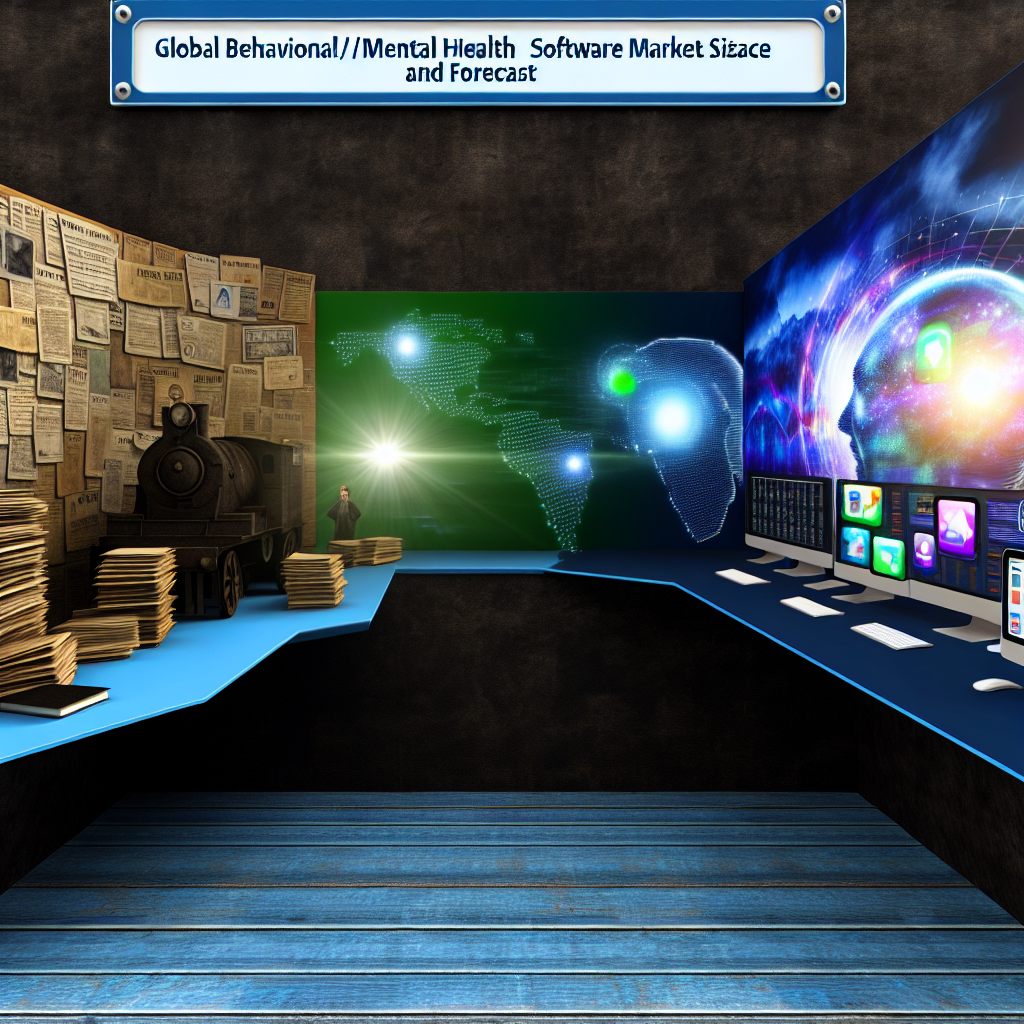Explore the global behavioral/mental health software market size, trends, and forecasts for strategic insights.
Global Behavioral / Mental Health Software Market Size and Forecast

Table of Contents
Global Behavioral / Mental Health Software Market Size and Forecast

The global behavioral/mental health software market is experiencing significant growth, driven by the increasing prevalence of mental health disorders, rising awareness of mental health issues, and the growing adoption of digital health technologies. This article explores the current landscape, key drivers, and future prospects of the behavioral/mental health software market, providing insights into how technology is transforming mental health services.
Overview of the Behavioral/Mental Health Software Market
Behavioral/mental health software is designed to manage and streamline the operations of mental health and behavioral health practices. It includes a range of functionalities such as electronic health records (EHR), billing, patient scheduling, and telepsychiatry capabilities. The integration of these tools helps healthcare providers improve the efficiency and effectiveness of their services, enhancing patient outcomes.
Market Size and Growth Projections
The global behavioral/mental health software market has shown robust growth over the past few years. According to a report by Grand View Research, the market was valued at approximately USD 2.31 billion in 2020 and is expected to grow at a compound annual growth rate (CAGR) of 17.7% from 2021 to 2028. This growth is attributed to several factors, including the increasing burden of mental health disorders, government initiatives to promote mental health awareness, and the rising need for efficient healthcare solutions amidst the COVID-19 pandemic.
Key Drivers of the Market
- Increasing Prevalence of Mental Health Disorders: The rising number of individuals suffering from mental health issues such as anxiety, depression, and bipolar disorders is a primary driver for the adoption of behavioral health software.
- Technological Advancements: Innovations in IT and healthcare technologies, such as artificial intelligence (AI) and machine learning, are enhancing the capabilities of mental health platforms, making them more efficient and user-friendly.
- Government Initiatives: Increased funding and initiatives by governments across the globe to improve mental health services and infrastructure are further propelling the market growth.
- Shift Towards Telepsychiatry: The COVID-19 pandemic has accelerated the shift towards telepsychiatry and online consultations, increasing the demand for virtual care solutions.
Regional Insights
The North American region holds the largest share of the behavioral/mental health software market, primarily due to the high prevalence of mental health disorders, well-established healthcare infrastructure, and the early adoption of digital health technologies. Europe follows closely, driven by similar factors along with strong governmental support and numerous initiatives aimed at mental health reform.
Asia-Pacific is expected to witness the fastest growth during the forecast period. This surge is due to increasing awareness of mental health issues, rising healthcare expenditure, and the growing penetration of digital health platforms in countries such as China, India, and Japan.
Challenges in the Market
Despite the promising growth, there are several challenges that the market faces:
- Data Privacy and Security Concerns: Handling sensitive patient information requires robust security measures to prevent data breaches, which remains a significant concern for providers and patients alike.
- Lack of Healthcare IT Professionals: There is a shortage of skilled IT professionals who are knowledgeable in both technology and mental health care, which can hinder the implementation of behavioral health software.
- High Cost of Implementation: The initial cost of implementing behavioral health software can be high, especially for small to medium-sized practices, potentially limiting its adoption.
Case Studies and Examples
Several case studies highlight the effectiveness and impact of behavioral health software:
- Telepsychiatry Implementation in Rural Areas: In rural regions of the United States, telepsychiatry has been successfully implemented using behavioral health software, significantly improving access to mental health services for remote populations.
- Integration with AI for Predictive Analysis: Some healthcare providers are integrating AI tools with behavioral health software to predict patient outcomes and personalize treatment plans, leading to improved patient engagement and outcomes.
Future Outlook
The future of the behavioral/mental health software market looks promising with continuous advancements in technology and an increasing focus on mental health globally. Innovations such as AI, natural language processing, and blockchain could further revolutionize this field, making mental health care more accessible and effective.
Conclusion
The global behavioral/mental health software market is set to continue its growth trajectory, driven by technological advancements, increasing awareness of mental health issues, and the rising prevalence of mental disorders. While challenges such as data security and high costs exist, the potential benefits of improved accessibility and efficiency in mental health services are substantial. As the world increasingly embraces digital health solutions, behavioral health software will play a crucial role in shaping the future of mental health care.
In conclusion, stakeholders in the healthcare sector, including policymakers, healthcare providers, and technology developers, must collaborate to overcome these challenges and harness the full potential of behavioral health software. This collaboration will ensure that the benefits of technology in mental health care are realized globally, leading to better patient outcomes and more efficient healthcare systems.








